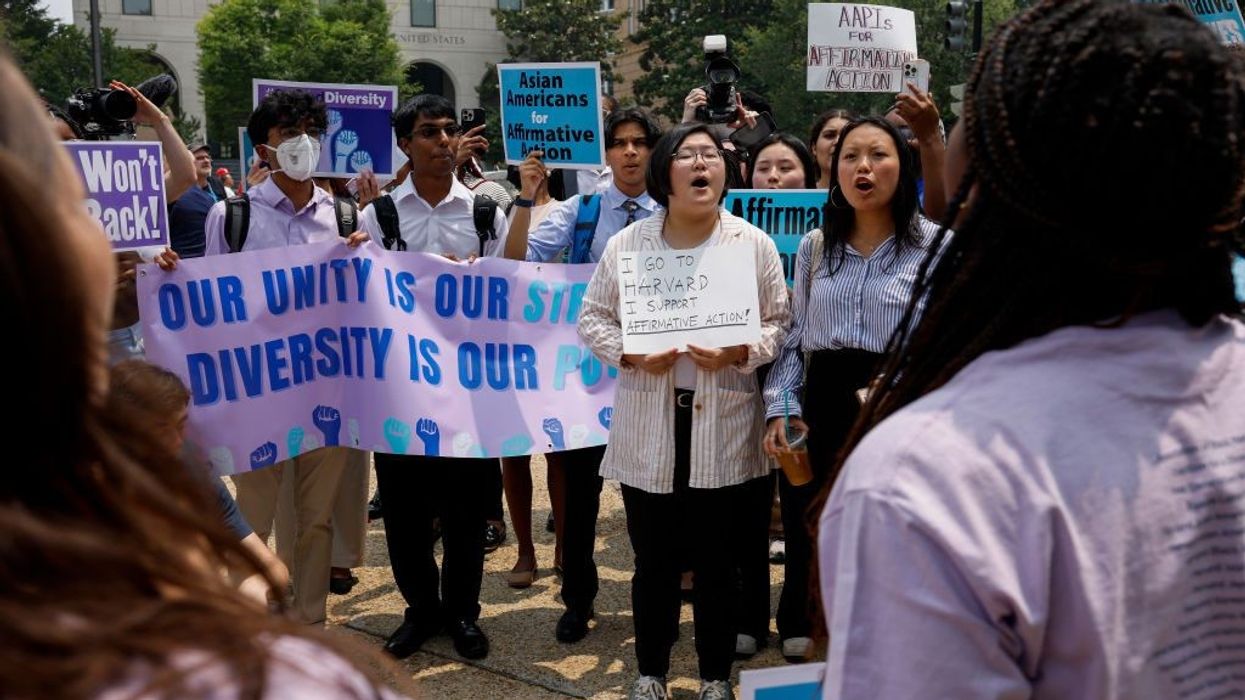THE US Supreme Court on Thursday (29) struck down race-conscious admissions programs at Harvard University and the University of North Carolina, effectively prohibiting affirmative action policies long used to raise the number of black, Hispanic and other underrepresented minority students on American campuses.
In a decision that will force many colleges and universities to overhaul their admissions policies, the justices ruled that affirmative action admissions programmes that consider an applicant's race in ways like Harvard and UNC did violate the US Constitution's promise of equal protection under the law.
Powered by the conservative justices with the liberals in dissent, the court sided with a group called Students for Fair Admissions, founded by anti-affirmative action activist Edward Blum, in its appeal of lower court rulings upholding programmes used at the two prestigious schools to foster a diverse student population. The vote counts were 6-3 against UNC and 6-2 against Harvard.
In landmark rulings last year with far-reaching societal implications also spearheaded by the conservative justices, the court overturned the 1973 Roe v. Wade decision that had legalised abortion nationwide and widened gun rights.
Speaking at the White House, president Joe Biden said he strongly disagreed with Thursday's ruling, written by Chief Justice John Roberts, and urged colleges not to abandon their commitment to student diversity. Asked by a reporter if this is "a rogue court," Biden replied, "This is not a normal court."
Roberts wrote that a student "must be treated based on his or her experiences as an individual not on the basis of race. Many universities have for too long done just the opposite. And in doing so, they have concluded, wrongly, that the touchstone of an individual's identity is not challenges bested, skills built or lessons learned but the color of their skin. Our constitutional history does not tolerate that choice."
According to Harvard, around 40 per cent of US colleges and universities consider race in some fashion. Blum's group in lawsuits filed in 2014 accused UNC of discriminating against white and Asian American applicants and Harvard of bias against Asian American applicants.
Harvard and UNC had said they used race as only one factor in a host of individualized evaluations for admission without quotas - permissible under previous Supreme Court precedents - and that curbing its consideration would cause a significant drop in enrollment of students from under-represented groups.
"Harvard and UNC admissions programs cannot be reconciled with the guarantees of the Equal Protection Clause," Roberts wrote, referring to the constitutional provision.
Universities, Roberts added, may still consider a student's personal essays about "how race affected his or her life, be it through discrimination, inspiration or otherwise." But, Roberts said, "universities may not simply establish through application essays or other means the regime we hold unlawful today."
Affirmative action had withstood Supreme Court scrutiny for decades, most recently in a 2016 ruling involving a white student, backed by Blum, who sued the University of Texas after being rejected for admission.
The Supreme Court has shifted rightward since 2016 and now includes three justices who dissented in that case and three appointees by Republican former president Donald Trump, who is running again in 2024. Trump on Thursday hailed Thursday's ruling as "a great day for America."
Many institutions of higher education, corporations and military leaders long have backed affirmative action on campuses not simply to remedy racial inequity and exclusion in American life but to ensure a talent pool that can bring a range of perspectives to the workplace and the US armed forces.
Thursday's ruling appeared to exempt military service academies from its sweep, with Roberts highlighting "the potentially distinct interests that military academies may present," and noting that the litigation had not addressed "the propriety of race-based admissions systems in that context."
Biden, seeking re-election in 2024, recommended that colleges weigh a range of factors in admitting students including their economic backgrounds or hardships they had faced including racial discrimination.
"Discrimination still exists in America. Today's decision doesn't change that," Biden said.
"I believe our colleges are stronger when they are racially diverse. Our nation is stronger ... because we are tapping into the full range of talent in this nation," Biden added.
Liberal Justice Ketanji Brown Jackson, the first Black woman to serve on the court, wrote in a dissent: "With let-them-eat-cake obliviousness, today, the (court's) majority pulls the ripcord and announces 'colorblindness for all' by legal fiat. But deeming race irrelevant in law does not make it so in life."
Jackson did not participate in the Harvard case because of her past affiliation with the university.
Liberal Justice Sonia Sotomayor, the first Hispanic jurist on the court, wrote that the decision subverts the constitutional guarantee of equal protection and further entrenches racial inequality in education.
"Today, this court stands in the way and rolls back decades of precedent and momentous progress," Sotomayor wrote.
Harvard's leaders said in a statement they would "determine how to preserve, consistent with the court's new precedent, our essential values." University of North Carolina System president Peter Hans pledged to "follow the law."
(Reuters)





